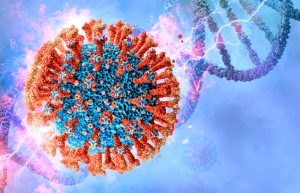Depression is a mental condition that can affect how you think, feel and act. It creates a feeling of sadness and a loss of interest in doing things. It can even affect how you carry on with your day-to-day activities, both at work and at home. Find out more about depression in this article: its symptoms, causes, and whether it can be treated.
Depression can either be caused by changes in your life or certain medical conditions. Recently, the COVID-19 pandemic has also resulted in an increase in the incidence of depression across Asia and the world. It is very important to undertake a thorough medical examination and treat it accordingly.
PSA: Medical Channel Asia (MCA) is now on Telegram! Join us here for daily reads and the latest updates at your fingertips!
What Are The Symptoms of Depression?
Depression manifests itself in any of the following forms:
- A feeling of sadness, emptiness and hopelessness.
- Loss of interest in doing normal activities.
- Frustration and anger even over small matters.
- Sleep issues, which can be a lack of sleep or too much sleep.
- Fatigue and lack of energy.
- Overeating resulting in weight gain or undereating resulting in weight loss.
- Slow body movement and speaking.
- Trouble thinking and making decisions.
- Suicidal thoughts or attempts.
- Physical problems without any medical issues.
- Lack of interest in socialising.
What Causes Depression?
Depression can be caused by a variety of factors.
- Age: Age-related changes in the body can cause depression in the elderly. A few factors are ailments, living alone, lack of a support system or bereavement.
- Abuse: Abuse in any form, whether physical, emotional or sexual, can cause depression.
- Gender: Women are more likely than men to develop depression. The reason for this is not quite clear, but hormonal changes in a woman’s life could play a role.
- Genetics: You are more likely to develop depression if any of your close family members like your parents, siblings or children have gone through this.
- Chronic illness: Chronic illness is one that lasts for a long time and cannot be cured completely. Examples of illnesses that can cause depression include diabetes, heart disease, kidney disease and HIV.
- Substance use: The use of substances like drugs and alcohol will increase your chances of developing depression. Though you may feel happy and ‘high’ after consuming the substance, this happiness is short-lived. Ultimately, you may fall into depression.
- Life events: People take time to get adjusted to certain events in life like moving to a new place, starting a new job, loss of income or getting divorced. When these happen, there are chances for the person to become depressed.
- Personality: People with certain personalities are more prone to depression than others. For example, those with low self-esteem or are overly self-critical are more likely to develop depression than others.
- Pregnancy and delivery: Pregnancy and delivery bring about a lot of physical and hormonal changes in the mother. These changes can sometimes lead to depression.
Can Depression Be Treated?
Although there are currently no permanent cure for depression, the symptoms can be managed through lifestyle changes and medications. Below are a few methods used by health care professionals to manage this condition.
Lifestyle changes
Lifestyle changes can bring about a positive impact on your life. This includes eating a healthy diet, exercising regularly and getting proper sleep. Yoga, meditation and listening to spiritual talk can help calm your mind. Substances that can trigger depression, like alcohol and drugs, should be avoided. Try to spend time with others and in nature.
Psychotherapy
Psychologists use different forms of therapy to treat patients with depression. A few of the commonly used therapy includes cognitive therapy, behavioural therapy and holistic therapy. Doctors make use of one or more of these therapy techniques to manage patients. These therapies help change the behaviour of the patient and provide them with more confidence. It is a platform for the patient to talk openly with the doctor and health care professional.
Medications
Medications used for treating depression is called antidepressants. All medications may not work the same way for everyone. While some medications may be effective for some patients, for others it may not be so. Thus, the doctor will try out different types of medication to figure out the one that best suits your individual requirements. Sometimes, multiple medications may be required to treat and manage the condition.
Device-based therapy
If depression does not respond to medication and psychotherapy, device-based therapy may be used. In this type of therapy, magnets, implants or electricity may be used to trigger brain activity. Some of the device-based therapies that are used for treating depression are electroconvulsive therapy, repetitive transcranial magnetic stimulation, and vagus nerve stimulation.
When Should You Consult A Doctor?
If the symptoms of depression are affecting your day-to-day life or are causing problems in your relationships with others, you should consult a doctor. Similarly, if you or your close one is having suicidal thoughts or talking about death, you should also consult a doctor without delay. Once the doctor talks to you, they will get a clear idea about the severity of your depression and how to manage your condition.
Did you find this article useful and informative? Do you have more questions regarding this topic, or any other topics related to medical and healthcare? Send your questions to [email protected] now!










